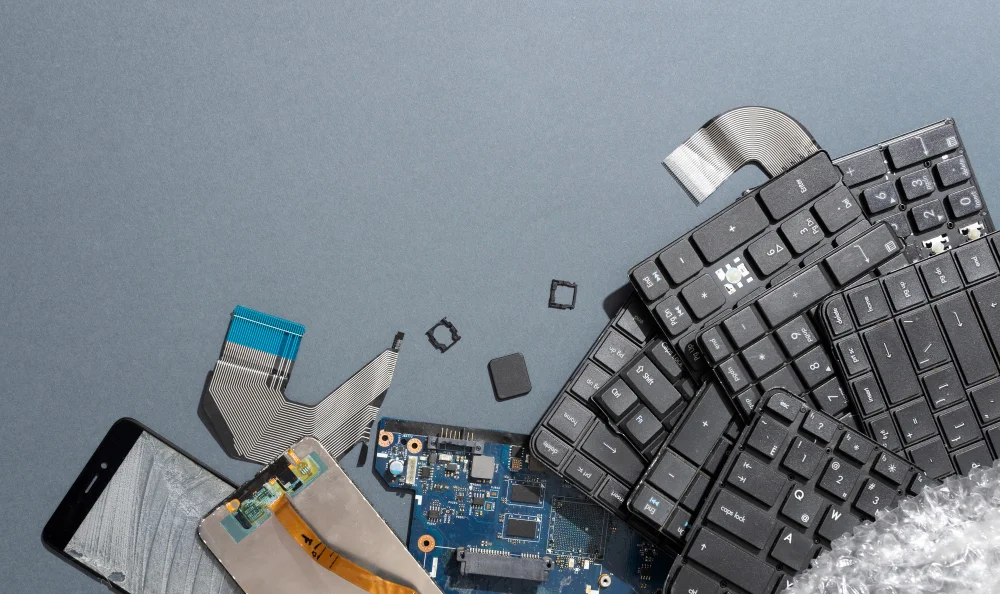In today’s fast-paced technological world, staying up-to-date with the latest gadgets can be expensive. However, there’s a sustainable and cost-effective alternative: used electronics. By exploring the world of electronics, you can find great deals near you while also contributing to reducing electronic waste. This guide will walk you through the benefits of buying electronics, where to find them, and what to look for when making a purchase.
Benefits of Buying Used Electronics
Cost Savings
One of the primary benefits of buying used electronics is the significant cost savings. You can often find high-quality devices at a fraction of the price of new ones. Benefits include:
- Lower Prices: Electronics are typically much cheaper than new models.
- Negotiable Prices: There’s often room to negotiate with sellers for an even better deal.
- Avoiding Depreciation: Electronics depreciate quickly, so buying used means you avoid the steepest drops in value.
Reducing Waste
Purchasing electronics also helps in reducing e-waste. By giving a second life to devices, you contribute to a more sustainable environment. Benefits include:
- Minimizing Landfill Waste: Fewer electronics end up in landfills.
- Conserving Resources: Reduces the need for new materials and energy to produce new devices.
- Promoting Reuse: Encourages a culture of reusing and repurposing items.
You may also want to know: Top 10 Home Security Cameras
Where to Find Used Electronics
Finding is easier than you might think. Here are some reliable sources:
Online Marketplaces
- eBay: A popular platform for buying and selling electronics.
- Craigslist: A local classifieds site where you can find great deals.
- Facebook Marketplace: convenient for finding from local sellers.
Retailers
- Certified Refurbished Stores: Many retailers offer certified refurbished products that come with warranties.
- Second-Hand Stores: Places like thrift shops and pawn shops often have used.
Local Community
- Garage Sales: Great for finding deals on in your neighborhood.
- Flea Markets: Offer a variety of used items, including electronics.
- Local Classifieds: Check local newspapers and bulletin boards for listings.
What to Look for When Buying Used Electronics
When purchasing used electronics, it’s essential to know what to look for to ensure you get a good deal. Consider the following:
Condition
- Physical Condition: Check for any visible damage like cracks, dents, or scratches.
- Functional Condition: Ensure the device powers on and functions correctly.
- Battery Life: For portable electronics, check the battery health and lifespan.
Warranty and Return Policy
- Seller Warranty: Some sellers offer limited warranties on used electronics.
- Return Policy: Ensure there’s a return policy in case the device doesn’t meet your expectations.
Authenticity
- Original Parts: Verify that the device has original parts and hasn’t been tampered with.
- Serial Numbers: Check the serial numbers to ensure the device is genuine and not stolen.
Tips for Buying Used Electronics
Here are some tips to help you make a smart purchase when buying electronics:
Research
- Compare Prices: Check the prices of similar models to ensure you’re getting a fair deal.
- Read Reviews: Look for reviews of the device model to understand common issues and performance.
Test Before Buying
- In-Person Inspection: If possible, inspect and test the device before purchasing.
- Ask Questions: Inquire about the device’s history, usage, and any previous repairs.
Negotiate
- Price Negotiation: Don’t be afraid to negotiate the price with the seller.
- Bundling: Sometimes buying multiple items from the same seller can get you a discount.
Environmental Impact of Used Electronics
Buying electronics has a positive environmental impact. Here’s how:
Reducing E-Waste
- Less Landfill Waste: Fewer electronics end up in landfills, reducing environmental contamination.
- Lower Carbon Footprint: Decreases the demand for new manufacturing, which is energy-intensive.
Resource Conservation
- Saving Raw Materials: Reusing electronics reduces the need for extracting raw materials.
- Energy Conservation: Less energy is required to refurbish and reuse electronics compared to manufacturing new ones.
People Also Ask
What is the difference between used and refurbished electronics?
Used electronics are sold as-is, while refurbished items have been repaired, inspected, and certified for resale.
Are used electronics reliable?
Yes, as long as you check the condition, functionality, and seller credibility before purchasing.
What are the best websites for buying used electronics?
Popular options include eBay, Facebook Marketplace, and certified refurbisher websites.
How can I safely buy used electronics online?
Always review seller ratings, check product descriptions thoroughly, and use secure payment methods.
Why should I consider buying used electronics?
It’s cost-effective, eco-friendly, and helps reduce e-waste while giving devices a second life.
Conclusion
Exploring the world of used electronics is a win-win situation. You can save money, find great deals near you, and contribute to reducing electronic waste. Whether you’re looking for a second-hand smartphone, laptop, or other gadgets, the options are plentiful.
By following the tips and guidelines provided in this guide, you can make informed decisions and enjoy the benefits of electronics. Start your journey today and embrace the sustainable and cost-effective choice.
